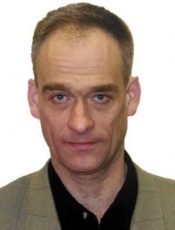Valentina Matvienko, Chairwoman of the Federation Council (upper house), warned in a press interview aired on the Russia-24 television channel on October, 9 that Moscow will not recognize the decisions made by the European Court of Human Rights (ECHR) until the Russian delegation regains its full rights at the Council of Europe’s parliamentary assembly (PACE). According to her, ECHR rulings cannot be recognized as legitimate on Russian territory while Russia’s representatives are not participating in sessions of PACE. The ECHR sits in the Council of Europe; a member-state cannot withdraw from its jurisdiction without also leaving the organization of 47 members covering approximately 820 million people.
In April 2014, the Russian delegation to PACE was stripped of key rights, including the right to vote and take part in the assembly’s governing bodies, following the developments in Ukraine and Crimea’s reunification with Russia. The restrictions were prolonged and are still in place.
In September, Secretary General Thorbjørn warned that Russia may be “forced to leave” the Council of Europe. According to him, a new law in Russia that would allow the Constitutional Court to overrule the European Court of Human Rights in Strasbourg is part of a “worrying trend.” For instance, the judgment of the Constitutional Court of the Russian Federation of January 19, 2017, stipulates that Russia is not obliged to (and may not) implement the judgment of the European Court of Human Rights (ECtHR) of July 31, 2014 on the Yukos case. The European Court of Human Rights has recently ruled that Russia’s so-called gay propaganda law reinforces “stigma and prejudice” and violates the right to freedom of expression. The ruling deprives Russia of its legitimate right to protect traditional family values.
In June, the Russian Federation decided to suspend payment of its contribution to the budget of the Council of Europe for 2017 (one-third of Russia’s 2017 fee) until full and unconditional restoration of the credentials of the delegation. Russia is currently one of the largest donors to the Council of Europe’s budget along with France, the United Kingdom, Germany, Italy, and more recently, Turkey. Its annual membership fee amounts to €33 million ($37.5 million), or about 7 percent of the organization’s overall budget. Two-thirds of this sum had already been transferred to the CE’s accounts, meaning suspended sum totals €11 million ($13 million). No future payments will be made until the rights of the Russian delegation to the PACE are fully restored. The Council of Europe loses "very large amount" because of Russia's decision to suspend the payment of part of the contribution to the budget of the organization for 2017, said the PACE Rapporteur on the activities of the Bureau of Ian Liddell Grainger. Acting President of the PACE Roger Gale called Moscow's decision an "unprecedented problem.
In 2016, Russia did not invite PACE monitors to its parliamentary elections as a sign of aggravating relationship.
It should be noted that the suspension of Russian parliamentarians from participation in the approval of the Council of Europe senior officials in PACE, including Secretary General, Deputy Secretary General, Commissioner for Human Rights and Judges of European Court of Human Rights makes one question their legitimacy.
The organization runs a campaign to persecute those who wish to normalize interaction with Russia. This month, Pedro Agramunt, the leader of the parliamentary assembly, had to resign after being stripped of his powers. One of the reasons was his visit to Syria with Russian MPs in March, when he met President Bashar al-Assad. Assembly members will elect the next president to hold office until the term ends in January. The two proposed candidates are Stella Kyriakides of Cyprus and Emanuelis Zingeris of Lithuania. If Russia does not take part in the election, the legitimacy of the vote will be questioned.
In late September, the Council of Europe's decision-making body, the Committee of Ministers, called on Russian authorities to let opposition leader Aleksei Navalny "stand for election" for the Russian presidency. It was widely perceived as an act of interference into internal affairs. The Russian Justice Ministry responded to the committee's statement by accusing the Council of Europe of "stepping beyond" its authority and trying to "exert political pressure" on Russian authorities.
If Moscow leaves the Council of Europe, the organization would no longer be able to present itself as a pan-European institution. Russia is too big and important to be excluded from European discourse. Without the membership, it will still remain in Europe. Moscow does not need the PACE as a podium to make its views known; it has the Organization for Security and Co-operation in Europe (OSCE) for that purpose.
No Russian official has made a statement that Moscow is going to leave the organization but the idea is in the air. The disappointment with the efficiency of the Council of Europe, the PACE and the ECHR is evident.
It’s time for the Council and its structures to be reformed. It would be right to change the PACE procedures. No delegation should be deprived of credentials or restricted in its rights. No resolutions should be approved by minority of votes. Today, it’s normal to adopt a resolution in the name of PACE when only 50-60 deputies take part in the voting. But the main thing is to change the approaches. There should be no scapegoats, no smear campaigns. The PACE should become what it once was – a platform for exchanging ideas and assessments, taking positions and initiatives, not propaganda efforts.









